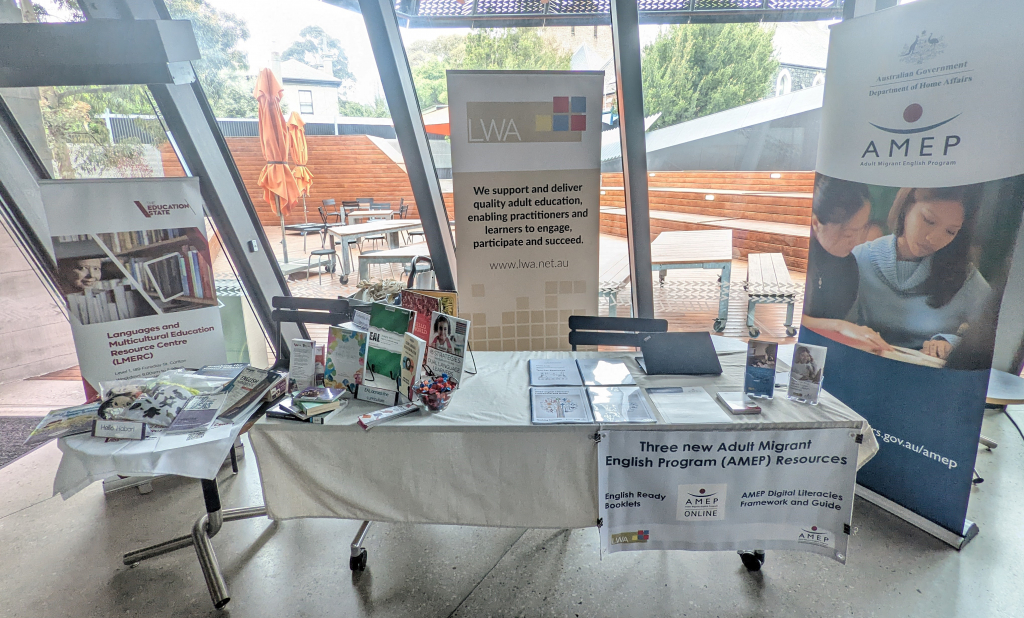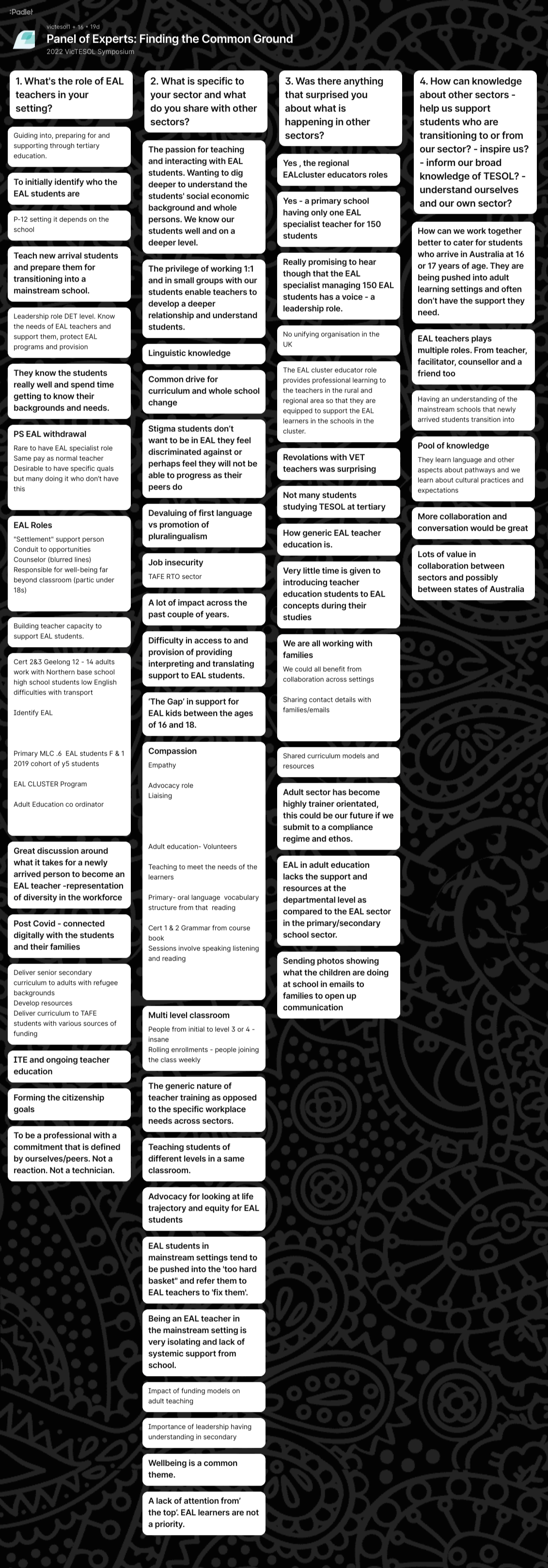2022 VicTESOL Symposium
LWA and LMERC at the 2022 Symposium
Alfredo Landeros and Ruth Woolven
LWA
LWA were pleased to share a table with LMERC (Languages and Multicultural Education Resource Centre) at the VicTESOL Symposium on Friday 11th November 2022. It was great to showcase with LMERC resources that related to second language acquisition and language teaching methodology for all levels, from early years to adults.
The AMEP 3 new resources: the English Ready Booklets, AMEPOnline, and the Digital Literacies Framework, Guide, and companion Teaching Resources were of great interest to symposium participants and the participants are looking forward to their publication on the Australian Department of Home Affairs website (Adult Migrant English Program page).
Languages & Multicultural Education Resource Centre (LMERC)
The Symposium provided me with a wonderful opportunity to meet so many EAL educators and the sessions were very informative. Being new to LMERC, I enjoyed chatting about what we provide and what is important to you. We appreciate any suggestions/recommendations for resources.
LMERC is a specialist resource centre for educators across all sectors with both digital and physical resources to support EAL teaching and learning. This includes academic and practical teacher resources; culturally inclusive fiction and non-fiction; games and storytelling kits and realia (puppets, masks, clothes and toys).
We regularly provide bi-lingual dictionaries and picture books, readers and other resources to support your students in schools across Victoria. If you need any resources, you can visit us in Carlton, email for suggestions or look through our catalogue and request items. We have a growing collection of ebooks and audio books that you can access through the catalogue.
We send a newsletter once a term with information about our new resources, professional learning opportunities and relevant articles. Please email if you would like to receive the newsletter.
Telephone: (03) 9349 1418
Catalogue: lmerc.softlinkhosting.com.au
Opening hours: weekdays 9am-5pm, including school holidays
How to Join LMERC and select Register in the top right-hand corner
How to get to LMERC




